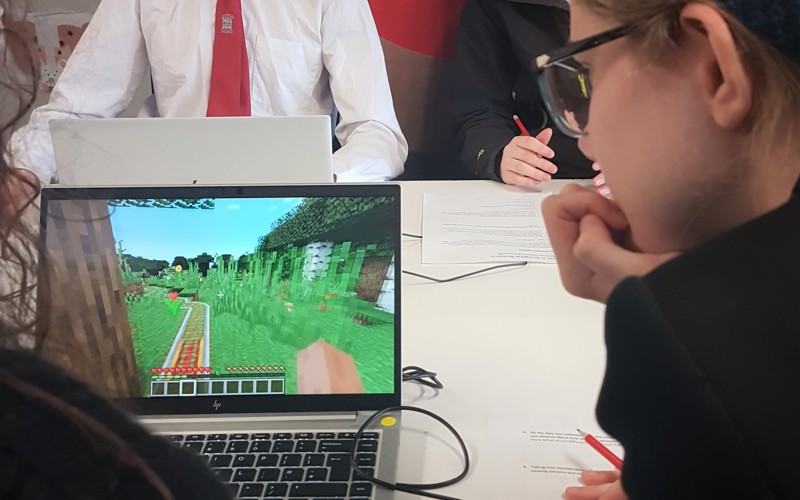
Five projects receive funding to support public engagement
Research Data Scotland (RDS) has awarded over £34,000 to five projects through its Public Engagement Fund in 2025-26.
15 Jan 2025
Led by: The SCONe project, University of Edinburgh
Funding awarded: £6,925

The SCONe project, whose staff are based largely at the University of Edinburgh, aims to improve health outcomes by establishing a comprehensive repository of retinal images from optometry practices across Scotland.
The project team seek to create age-appropriate, participant-driven resources that raise public awareness of the value of retinal images as data in healthcare research.
The term ‘data’ covers a wide range of information, which can make it challenging for the public to engage in discussions about data research. Using the SCONe project as an example, the team will work with the public to break down complex ideas into tangible examples. Working with participants, they will explore the implications of using – or not using – health data in research around disease prevention, care and early detection.
The project will span six months and consist of three phases. The first phase includes a workshop at the University of Edinburgh to design cultural probes – packages containing creative, thought-provoking tasks that participants complete at their own pace. These cultural packages will be focused on retinal images as data for health research.
In the second phase, cultural probes will be distributed to 20 participants in Aberdeen. This activity will lay the groundwork for discussions and resource development of phase three, which will gather all participants, two public partners and two SCONe representatives for a workshop to analyse insights from the cultural probes. Together, they will develop recommendations that can be used by SCONe as the foundation of materials that will enhance public awareness of the value of retinal images in healthcare research.
The project aims to include participants that reflect the demographics included in the SCONe repository, with a focus on young adults (18 to 25) and older adults (60+). The team have identified that there are often limited opportunities for participants from these generations to come together and engage in meaningful dialogue, and hope that including a mix of ages will provide perspectives from people who haven’t grown up with technology and younger people with a digitally centred background.
Related content

Research Data Scotland (RDS) has awarded over £34,000 to five projects through its Public Engagement Fund in 2025-26.
15 Jan 2025

Public Engagement Manager, Katie Oldfield, reflects on our 2022-23 Public Engagement Fund and the impact of the projects it has supported.
Katie Oldfield
11 Mar 2024
To stay updated with Research Data Scotland, subscribe to our monthly newsletter and follow us on X (Twitter) and LinkedIn.
